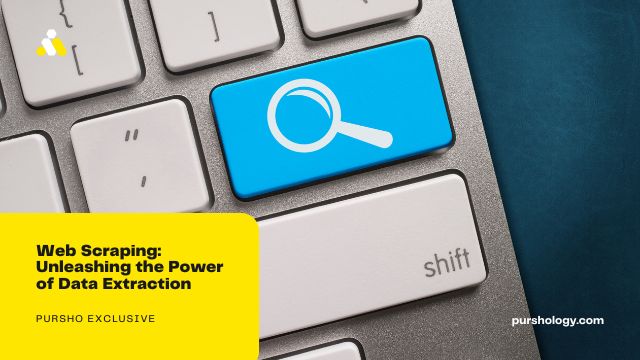In today’s digital age, data plays a pivotal role in decision-making, business strategies, and research. The vast expanse of the internet holds a wealth of information, but manually collecting and organizing data from numerous websites can be a daunting and time-consuming task. This is where web scraping comes to the rescue. Web scraping is a technique that allows us to automate the process of data extraction from websites, providing valuable insights and saving precious time. In this article, we will delve into the world of web scraping, exploring its benefits, challenges, and ethical considerations. The scrapingant.com provides web scraping.
Understanding Web Scraping
At its core, web scraping involves using automated scripts or tools to extract information from websites. These tools access the website’s HTML code, parse the relevant data, and convert it into a structured format, such as a CSV or JSON file, which can be easily analyzed and utilized. The scraped data may include text, images, prices, product details, or any other information present on the website.
The Power of Data Extraction
Web scraping offers a plethora of advantages in various fields:
- Business Insights: Companies can monitor competitors’ pricing, analyze customer sentiments, and gather market trends to make informed decisions.
- Research and Academia: Researchers can collect vast amounts of data for analysis, enabling them to identify patterns, conduct sentiment analysis, and support their studies.
- Real Estate and Travel: Websites can be scraped to gather information on property listings, hotel prices, or flight details, making it easier for consumers to compare options.
- Finance and Investment: Traders and investors can scrape financial data, stock prices, and economic indicators to strategize their investments effectively.
The Legal and Ethical Landscape
While web scraping presents numerous opportunities, it also raises legal and ethical concerns. Website owners may view web scraping as a threat to their content and intellectual property rights. In some cases, scraping can put a strain on a website’s server, leading to performance issues.
- Terms of Service: Many websites explicitly state their stance on web scraping in their terms of service. It is crucial to review and adhere to these terms to avoid legal repercussions.
- txt: Website owners can use the “robots.txt” file to specify which parts of their site are off-limits to web crawlers. As responsible web scrapers, we should respect these rules.
- Respectful Crawling: Scraping at an excessive rate can overload a website’s server and cause disruption. Implementing delays between requests and limiting the frequency of scraping can help maintain a respectful approach.
Web Scraping Tools and Libraries
Web scraping can be accomplished using various tools and programming libraries. Some popular choices include:
- Beautiful Soup: A Python library that makes it easy to extract information from HTML and XML documents.
- Scrapy: A powerful and flexible Python framework specifically designed for web scraping.
- Selenium: Ideal for scraping websites that heavily rely on JavaScript for content rendering.
Challenges in Web Scraping
Despite its advantages, web scraping comes with its own set of challenges:
- Website Structure Changes: Websites frequently update their design and structure, causing the scraping script to break. Regular maintenance is essential to ensure the script remains functional.
- Captcha and IP Blocking: Websites may implement Captcha or block IP addresses that generate excessive requests. Overcoming these obstacles requires advanced techniques such as proxy rotation or Captcha-solving services.
- Data Quality and Integrity: Web scraping can yield inaccurate or incomplete data due to variations in website formatting or errors in the extraction process. Data validation and cleaning are crucial to maintaining data integrity.
Ethical Considerations
Responsible web scraping involves adhering to ethical guidelines:
- Terms of Use: Always review and respect a website’s terms of use and scraping policies.
- Publicly Available Data: Limit your web scraping to publicly available data and avoid accessing private or sensitive information.
- API Usage: Whenever possible, use official APIs provided by websites, as they are a more structured and ethical way to access data.
Conclusion
Web scraping is a powerful tool that unlocks a world of valuable data, revolutionizing the way businesses operate, researchers conduct studies, and individuals make decisions. However, it comes with responsibilities. As web scrapers, we must act ethically, respecting the rights of website owners and maintaining data integrity. By striking a balance between technological capabilities and ethical considerations, web scraping can be a force for good in the data-driven world we inhabit.




